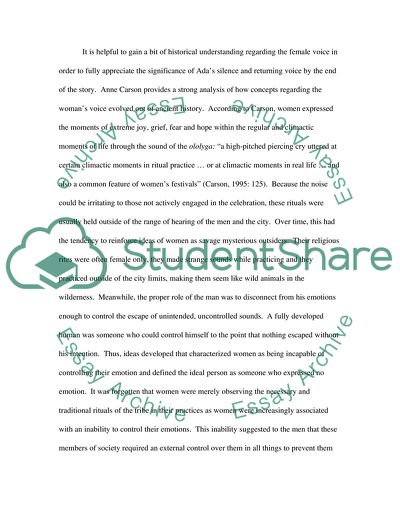Cite this document
(“Adas Muteness and Voice Essay Example | Topics and Well Written Essays - 2750 words”, n.d.)
Retrieved from https://studentshare.org/history/1553991-revision-and-expansion-of-a-previous-essay-based-on-the-piano-and-an-assessment-letter
Retrieved from https://studentshare.org/history/1553991-revision-and-expansion-of-a-previous-essay-based-on-the-piano-and-an-assessment-letter
(Adas Muteness and Voice Essay Example | Topics and Well Written Essays - 2750 Words)
https://studentshare.org/history/1553991-revision-and-expansion-of-a-previous-essay-based-on-the-piano-and-an-assessment-letter.
https://studentshare.org/history/1553991-revision-and-expansion-of-a-previous-essay-based-on-the-piano-and-an-assessment-letter.
“Adas Muteness and Voice Essay Example | Topics and Well Written Essays - 2750 Words”, n.d. https://studentshare.org/history/1553991-revision-and-expansion-of-a-previous-essay-based-on-the-piano-and-an-assessment-letter.


